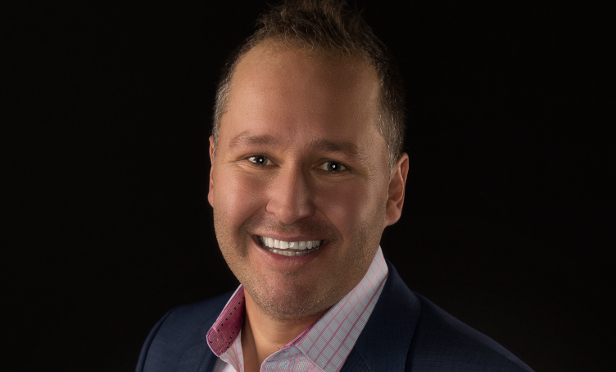
IRVINE, CA—Real estate marketing is a constantly evolving science with new and “smarter” platforms being unrolled by Wall Street and Silicon Valley every quarter—some great and others not so great, Realty ONE Group's founder and CEO Kuba Jewgieniew tells GlobeSt.com.
The locally based firm recently purchased five digital mega-billboards in New York City's Times Square for the Inman Connect conference, broadcasting five 15-second videos during the week a total of 19,000 times. Realty ONE says no real estate company has ever advertised in Times Square so massively.
We spoke with Jewgieniew about how real estate firms are marketing themselves now and how technology is changing this process.
GlobeSt.com: What's changing about how real estate firms are marketing themselves?
Jewgieniew: Real estate marketing is a constantly evolving science with new and “smarter” platforms being unrolled by Wall Street and Silicon Valley every quarter. Some are great; some are just too ahead of our times; and others are simply ridiculous.
Now, more than ever, it's critical for real estate companies to establish a brand that stands for something. For instance, Realty ONE Group is all about the “broker-first” model, so our marketing campaigns have to own that concept no matter what platform is being used.
In the past year, we've launched several marketing campaigns called “Unbrokerage,” “Opening Doors” and “Coolture.” Each have been deployed using a variety of vehicles, from Google AdWords and industry media sponsorships to social-media boosts and giant billboards in New York's Times Square, but they all stand for the same thing: Putting. Brokers. First.
GlobeSt.com: Is there any change in the audience to which they are marketing?
Jewgieniew: At the franchise level, yes. Brokers are targeting first-time homebuyers more aggressively now than they had been during the immediate aftermath of the Great Recession. This largely has to do with improvements in the broader economy and the fact that Millennials are starting to settle down in their careers and start families. We've found that younger buyers, in particular, are more reachable through digital marketing and creative campaigns.
At the corporate level, though, we're mainly focused on broader brand-building in support of our existing franchises. However, we're increasing and sharpening our marketing efforts to target new franchisees. I think the industry is moving in this direction where the bigger companies will be more aggressive in the recruitment of new business partners.
GlobeSt.com: How has technology shifted real estate firms' marketing strategies?
Jewgieniew: It used to be that all agents had to do to get their newest listing out to the potential buyers and tenants was take out an ad in their local paper. Now we geo-target smart ads based on machine-learning algorithms that tell us who is most likely to be interested in our listings. So, yeah, it's changed.
However, non-tech concepts such as word-of-mouth are still incredibly valuable in real estate. No message is more credible than the one that comes from a trusted friend, family member or business partner. It's just that now you're getting that referral through digital testimonials such as social media.
Also, technology has enabled the brands, themselves, to come to life—whether it's a personable agent with an active Instagram account or a large franchisor that is constantly engaging and interacting with its audience. In both cases (often at the same time), buyers and sellers are really getting to know us thanks to modern technology. We still strongly believe that in the foreseeable future, technology will not replace real estate professionals, but real estate professionals using technology will.
GlobeSt.com: What else should our readers know about this topic?
Jewgieniew: Twenty-eighteen is poised to be a landmark year for both commercial and residential real estate, and marketing will be a huge part of it. As the industry continues to grow, so will the level of competition over the best brokers. The company that can best articulate what it stands for will have a huge advantage.
© Touchpoint Markets, All Rights Reserved. Request academic re-use from www.copyright.com. All other uses, submit a request to [email protected]. For more inforrmation visit Asset & Logo Licensing.






